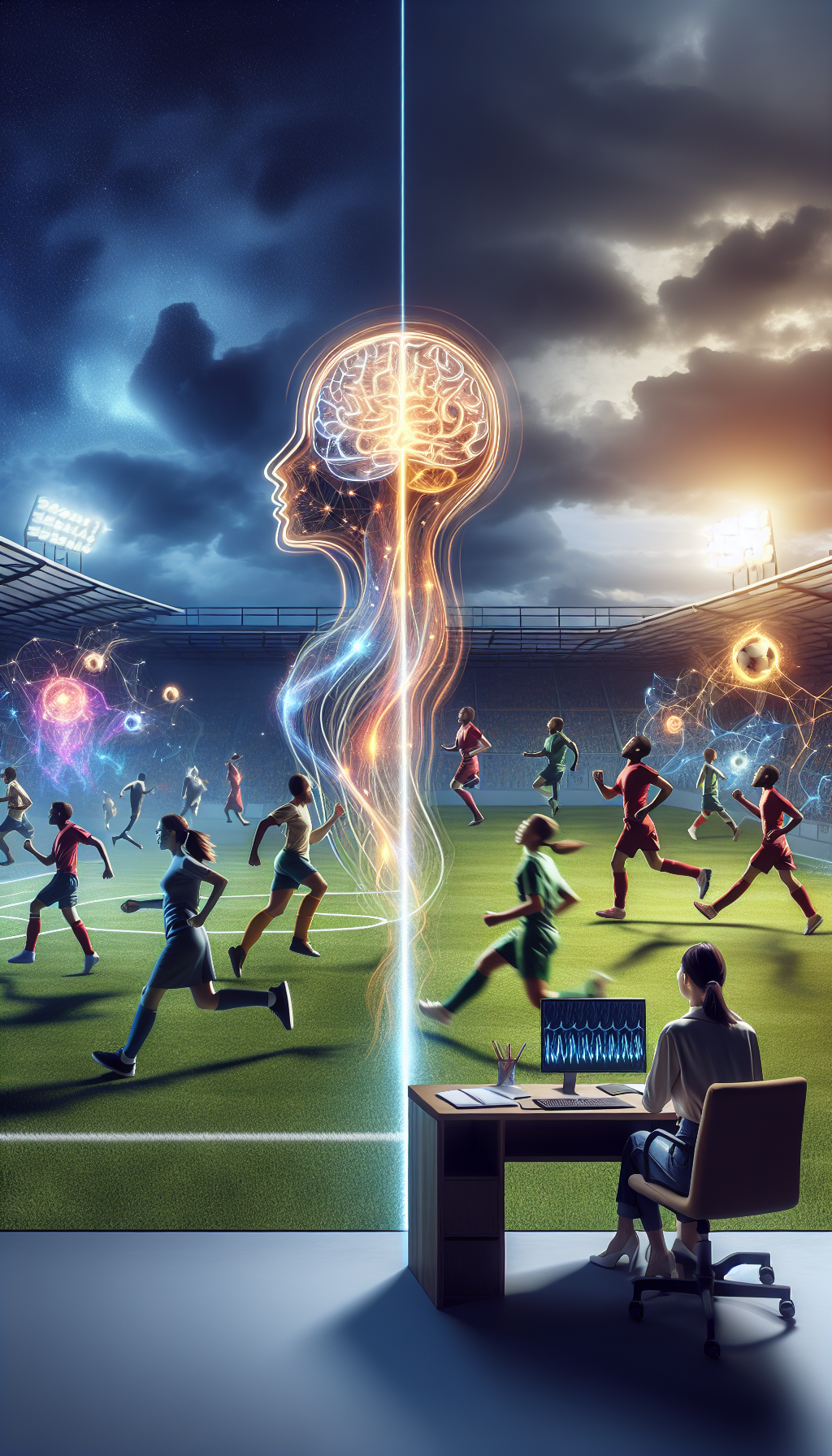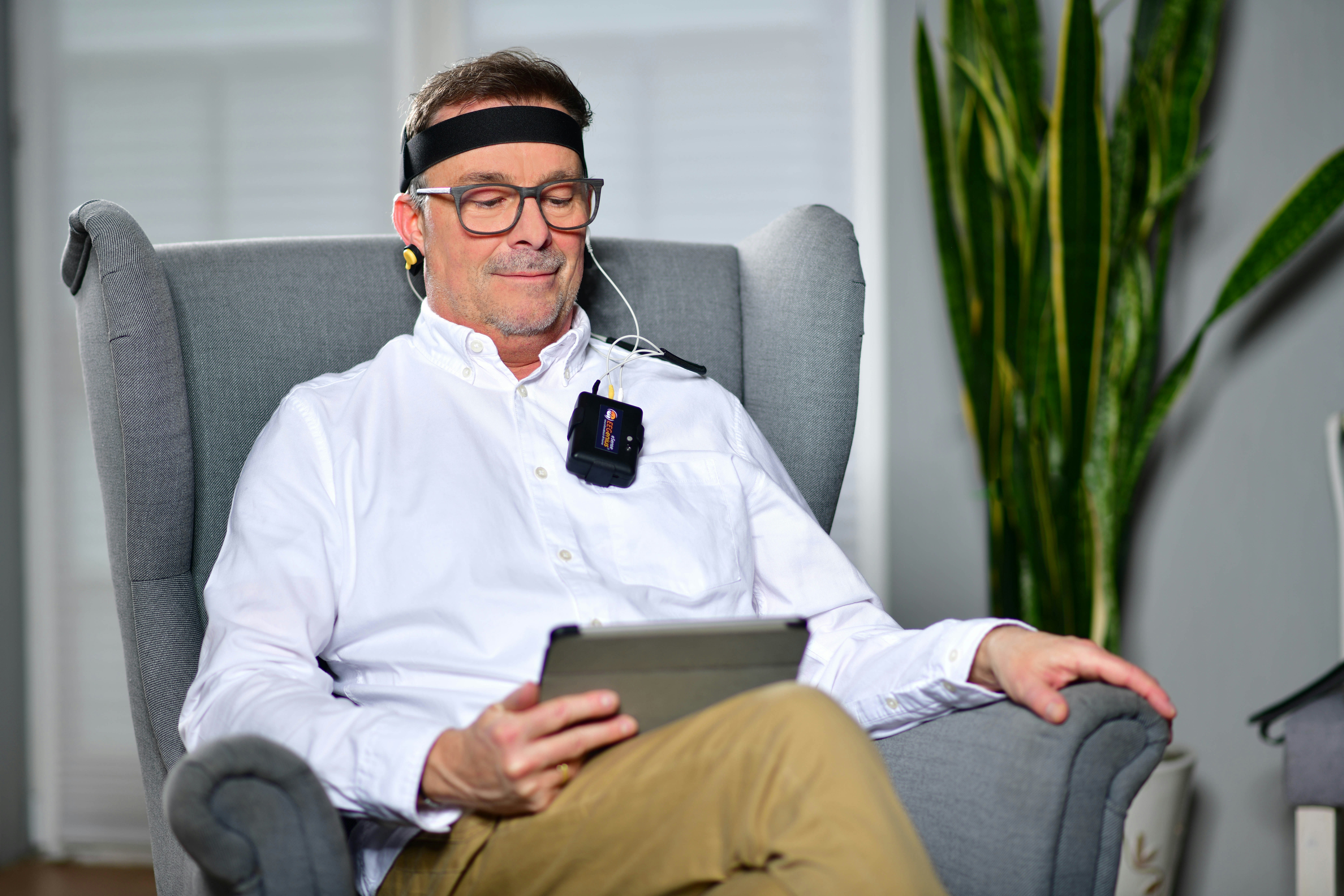In Person:
160 Christian Street, Oxford, CT 06478
Online Therapy:
Connecticut, Maryland, Virginia and Florida. HIPAA. Secure Video. Convenient. In-Person in CT
Call: 802-578-3700 or Email: connect@mindbodywelltherapy.com
A holistic counseling practice offering ketamine assisted psychotherapy & neurofeedback brain training
160 Christian Street, Oxford, CT 06478
Connecticut, Maryland, Virginia and Florida. HIPAA. Secure Video. Convenient. In-Person in CT
Call: 802-578-3700 or Email: connect@mindbodywelltherapy.com
What is Neurofeedback Treatment page created 07-14-24 by Lucrezia Mangione, LCPC, NCC, BC-TMH, DCEP
Neurofeedback is a gentle, noninvasive, non-drug way to unleash the
healing strength of your sensitive brain and nervous system.
Neurofeedback Brain Training can positively impact your mental health by
supporting the healthy functioning of your brain. It can improve your
mental health wellness while you work towards your goals. In today's
busy world, caring for your sensitive brain and nervous system is a
powerful gift you can give yourself.
Neurofeedback is also known by
other names, such as EEG Biofeedback, Biofeedback EEG, Brain training,
EEG Brain Training, and Neurotherapy. Whatever the label, Neurofeedback
is like having a helpful friend on your journey to feeling better and
stronger mentally. Let’s dig in and learn about the basic answers to the question "What is Neurofeedback Treatment?"
Neurofeedback is a gentle way to train your brain with exercises that help your brain and nervous system work more smoothly and efficiently. Your brain loves to operate in a smooth, calm way. When it remembers how to do that, through the exercise provided through Neurofeedback, your brain grows stronger and becomes even better at what it does naturally.
Think about it like attending yoga classes. Your body is exercised by going through different postures. As a result, it becomes stronger and more flexible. Brain training does the same. For many highly sensitive and non-highly sensitive people, exercising their brain with Neurofeedback can positively impact their mood, focus, energy level, and sleep. It is worth sharing that it is not therapy or a treatment though it is often integrated into psychotherapy and counseling. It is considered “training” or “brain training” because it exercises your brain, impacting your mind and mental health in beneficial ways.

Imagine your brain is like a soccer team. The different players on your
soccer team represent various brain functions. Sometimes, these players
get out of sync, leading to chaos on the field - like in your thoughts
and feelings. Neurofeedback acts like a coach, guiding each player to
work harmoniously, creating smooth and coordinated gameplay - like more
precise, focused thoughts and improving mood.
For example, if you're
anxious, the players run around wildly. The neurofeedback coach helps
them calm down, find their positions, and play as a team, resulting in a
more balanced and peaceful mind. Or, if you're feeling sad or
depressed, the players are sluggish and not communicating well. The
neurofeedback coach helps them find their energy, communicate better,
and play as a team, resulting in a more balanced and uplifted state of
mind.
And guess what? The coach knows what to do because you are the coach, too. In other words, you tell or “coach” your neurofeedback provider about your symptoms and health goals. And you'll have an ongoing conversation with them. In this way, your provider translates your "coaching" into a unique training program. It helps the soccer team of your brain work towards playing together so that they can take the shot and make those health goals.
Yes. Neurofeedback is gentle and safe, especially for sensitive people. It involves putting sensors on your head to listen to your brain's signals, like how a coach listens to you and helps you get better at a sport. And if you're taking medicine, it's okay—lots of people find that brain training can work well alongside their medicine. Of course, do share this info with your prescriber.
It depends on what you're trying to achieve for your mental health
goals. To find out, you’ll need to receive a personalized assessment
from a neurofeedback therapist. How many sessions over what period of
time depends on your goals, underlying conditions and diagnosis. That is
why the gold standard in receiving neurofeedback is with a licensed
mental health provider. Neurofeedback is uniquely personalized to meet
each sensitive client's needs.
Many clients start to
experience changes in about 20 sessions. Thereafter, clients continue
until they reach their desired goals. Here at Mind Body Well Therapy,
Pllc, In-office Neurofeedback brain training sessions for a client
happen weekly, 1 to 2 times per week, within a 30-minute appointment or
as a part of a longer holistic psychotherapy and counseling session.
At-home sessions can last up to 25 minutes and range from 1 to 5
sessions per week.
As a general guideline and not a guarantee, Neurofeedback is short-term for most highly sensitive people, anywhere from 3 to 6 months, depending on how regularly you sit for a brain training session and whether that is in-office or at home. How many sessions vary from 20 to 35, while others may require additional time to meet their goals, 35 to 100 sessions. Receiving a personalized neuro assessment and chatting with a neurofeedback specialist will provide more clarity for making an informed choice and decision. Knowing up front how much time you need to commit to optimizing your brain's health is valuable. Speak to a provider to get more information specific to you. Schedule a call.
Understanding your investment in your mental health using Neurofeedback
is essential to making an informed choice. Schedule a no-charge call to
discuss your needs and explore your suitability for neurofeedback brain
training. You’ll also receive information about our rates at Mind Body
Well Therapy during the call.
Here’s general information about brain
training session costs for 15 to 25-minute sessions, which vary
depending on location. They range from:
Our commitment here is to walk alongside you so that you have options on your personalized path toward your mental health healing and self-discovery.
Yes. Neurofeedback has been studied for a long time, since the 1960s, and biofeedback since 1954. Overall, the consensus is that it can support improving mood and energy, thinking more clearly, improving sleep, dealing with stress better, optimizing healthy cognitive brain function, and more. It also helps with peak performance in whatever profession or hobby you have. You can find many articles online about it, showing its efficacy and providing more extensive answers to the question, "What is neurofeedback treatment?" Here's a deeper dive into the research on this page: Is Neurofeedback Therapy Evidence-Based

Ready to try something new to feel better? You can set up a chat with Lucrezia Mangione, a neurofeedback provider, board-certified licensed counselor, and holistic therapist, who can explain more about Neurofeedback and how it might help you. Whether you're dealing with tough stuff like PTSD, anxiety, or depression or want to feel better overall, Neurofeedback could be a great option. Give her a call or send an email to get started on your journey to better mental health and wellness as a highly sensitive person.
Ready to take the next step? Let’s explore what support could look like—whether through holistic therapy, EEG neurofeedback, or KAP ketamine assisted psychotherapy.
Lucrezia Mangione supports anxious, highly sensitive women in fine-tuning focus, building emotional steadiness, and embracing the strengths of sensitivity. She also partners with therapists and helping professionals to offer brain-based care for clients who feel stuck or stalled. Her integrative approach helps clients feel calm, steady, and spacious—living and working on their own terms.